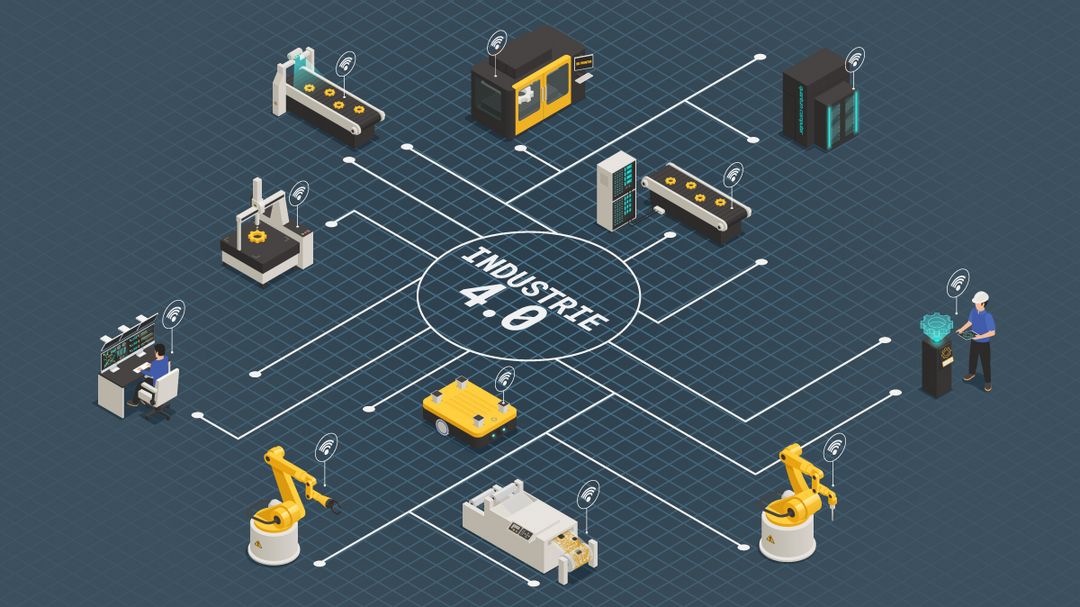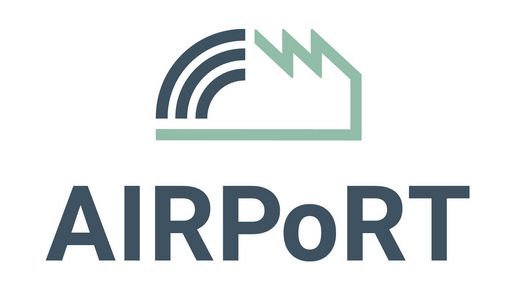Last year Japan and Germany ranked third and fourth among the world's economically strongest nations. In international comparison, both are leaders in trade as well as in research-intensive high technology. At the same time, the countries are struggling with similar problems: in the wake of demographic change, there is a shortage of skilled workers – and wage levels are very high.
For this reason, the German Federal Ministry of Economics and Energy (BMWi) and the Japanese Ministry of Internal Affairs and Communications (MIC) have launched the first German-Japanese project on “Artificial Intelligence for Mobile Industrial Communication”. The grant for German funding went to the project “AIRPoRT – Artificial Intelligence for Robotics and Networked Production”. Besides the research departments “Smart Data & Knowledge Services” and “Intelligent Networks” of the German Research Center for Artificial Intelligence (DFKI), the Fraunhofer Institute for Manufacturing Engineering and Automation (IPA) and the Fraunhofer Institute for Industrial Engineering (IAO) are involved. The Japanese counterpart to the project is conducted by the National Institute of Information and Communications Technology (NICT).
Fostering innovation, strengthening the economy
As early as 2017, the German government and Japan developed a joint strategy to exploit the economic potential of digitization and maximize the competitiveness of the industrial sector (Hannover Declaration). Artificial intelligence (AI) and the Internet of Things in industrial fields of application are to be used to sustainably increase the productivity of the entire economy. Innovative information and communication technologies are one of the main drivers for the further development of today's production environments: At the communications level, they enable ever faster wireless data connections, for example through the use of 5G. AI and machine learning processes support the efficient and effective use of very large amounts of data in the field of data and information processing. This means that not only single production processes can be optimized. Also technical and organizational innovations along the entire process chain are conceivable.
Experts for holistic projects
The “AIRPoRT” project aims to develop, optimise and test these technologies. The cooperation partners contribute their specific topics and experience: The DFKI research department “Smart Data & Knowledge Services”, headed by Prof. Dr. Andreas Dengel is developing innovative analysis methods for sensor data using AI. The “Intelligent Networks” department, headed by Prof. Dr. Hans Dieter Schotten, is responsible for embedding modern network technologies in an intelligent connectivity platform. The process architecture and coordination procedures for robot teams will be developed by Fraunhofer IPA, a comprehensive risk governance strategy by Fraunhofer IAO. This strategy is intended to contribute to the proactive and economically viable safeguarding of corresponding production facilities in multi-organizational process structures.
Research in the German-Japanese context
The first step of the German-Japanese cooperation will be to define common scenarios and use cases in order to adapt the technologies and concepts optimally to the requirements of global production contexts. For the future, both work on a common database and the collective development of processes are conceivable.
Dr. Alexander Tettenborn, Head of Unit VIB3, Development of Digital Technologies, Federal Ministry of Economics and Energy, in his opening address for the project launch in Berlin: "Japan and Germany share the view that cooperation between platforms, the development of ecosystems and the creation of alliances are important ways of exploiting the potential of artificial intelligence and the Internet of Things. Therefore, our collaboration can lead to a better understanding of how we can be globally successful. This first project can form the basis for further collaborations."
Competitive advantages through international alliances
Prof. Hans Dieter Schotten welcomes the German-Japanese cooperation and the global focus of the project: “Production processes with artificial intelligence will have an immense boost through communication technologies such as 5G and comparable methods. At the same time, we should not commit the mistake of looking at developments only from a local perspective. Innovations will only be able to withstand global competition if they are defined in a broader sense and can be applied worldwide.”
Prof. Andreas Dengel considers the intercultural exchange in application-oriented research to be extremely positive: “Germany and Japan are very successful especially in the field of research-intensive high technology; at the same time, the Japanese vision of human-centered AI is very similar to the German one. At DFKI, we are convinced that international alliances are indispensable if we are to survive in global competition.”
DFKI has been cooperating for many years with the top Japanese institutes for computer science AIST, NII and NICT, which help to advance AI research. In the industrial environment, new AI technologies are explored and developed in close cooperation with companies such as Wacom and Hitachi. The "International Workshop on Intelligence Augmentation and Amplification - IAA 2019", which took place at DFKI at the beginning of the year, also demonstrated the excellent exchange between German and Japanese scientists. Around 80 scientists, including the leading heads of Japanese AI research, met in Kaiserslautern to exchange ideas on relevant topics and to discuss joint research projects.


